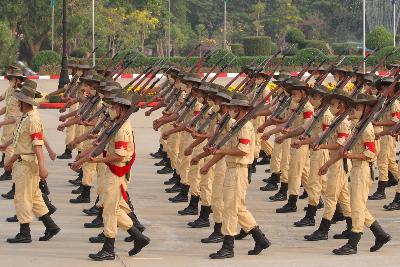Share
Human Rights Voices
While the UN devotes its human rights operations to the demonization of the democratic state of Israel above all others and condemns the United States more often than the vast majority of non-democracies around the world, the voices of real victims around the world must be heard.
Myanmar, November 26, 2021
Myanmar junta accused of forcing people to brink of starvation
Original source
Myanmar’s military junta has been accused of forcing people to the brink of starvation with repeated offensives since it seized power in a coup earlier this year.
The Special Advisory Council for Myanmar said the junta had destroyed food supplies and killed livestock while cutting off roads used to bring in food and medicine.
The council said military offensives in the country’s north-west and east have prevented farmers from harvesting their crops.
The council of experts, which includes people who previously worked on Myanmar for the UN, said the international community should work with the parallel national unity government (NUG), set up by pro-democracy politicians, to get support to people.
Chris Sidoti, former member of the UN fact-finding mission, said: “Instead of wringing our hands wondering what to do, the international community can and must work formally with the NUG and get assistance across borders into the country and to the people who need it.
“There are trusted local humanitarian and medical networks including service providers [and] community-based and civil society organisations that are already helping people. They need to be supported and empowered.”
The council has accused the junta of crimes against humanity, including intentionally depriving people of food.
Yanghee Lee, former UN envoy to Myanmar, said it was important that the junta continued to be spurned internationally because of the impact of its actions.
Lee said: “Anyone claiming to accommodate the military in the interests of the people is in fact only prolonging their suffering. These actions can be viewed as being complicit in the military’s crimes.”
A UN emergency update said 234,600 people have been internally displaced since the February coup, with more than 600,000 displaced in the country in total as of November. The report said most internally displaced people and host communities were struggling for food, medicine and fuel.
According to the UN, about 3 million people require life-saving assistance in Myanmar, with 2 million of them identified since the coup.

